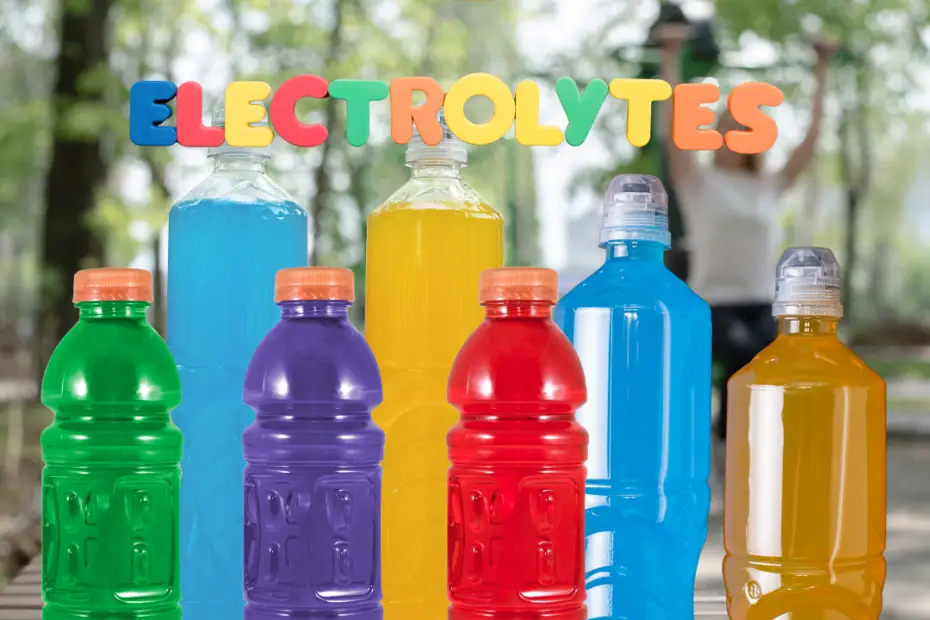Electrolytes do expire, but the exact timeframe depends on the type of electrolyte product. While the minerals themselves—such as sodium, potassium, magnesium, and calcium—do not degrade, the formulations they are in, such as powders, tablets, and liquids, have expiration dates. These expiration dates indicate the period during which the product maintains its potency, taste, and safety.
What are the Ingredients in Electrolyte?
Electrolytes are minerals like sodium, potassium, magnesium, and calcium that are essential for various bodily functions, including maintaining fluid balance, muscle contraction, and nerve function. These minerals do not expire in the traditional sense; however, the products that contain them can have a shelf life due to other ingredients and packaging.
Understanding Electrolyte Expiration
The expiration of electrolytes is usually due to the breakdown of added ingredients like flavoring agents, preservatives, and stabilizers. Over time, these components can degrade, altering the taste, texture, and effectiveness of the product. Proper storage plays a significant role in prolonging shelf life and maintaining product integrity.
Do Electrolyte Powders Expire?
Electrolyte powders have a longer shelf life compared to liquids and tablets, typically lasting anywhere from one to three years. The key risk with expired electrolyte powders is exposure to moisture, which can lead to clumping and reduced effectiveness. If stored in a cool, dry place with the original packaging intact, electrolyte powders can remain usable beyond the printed expiration date.
Do Electrolyte Tablets Expire?
Electrolyte tablets also have an expiration date, typically between one to two years. The tablets are formulated with stabilizers, but over time, they may become brittle, lose potency, or develop an off-putting taste. If exposed to humidity, they may dissolve prematurely or become ineffective.
Do Liquid Electrolytes Expire?
Liquid electrolytes tend to have the shortest shelf life, usually ranging from six months to a year. The presence of water in these formulations makes them more susceptible to microbial growth, flavor degradation, and ingredient separation. Once opened, they should be used within the recommended time frame, often a few weeks to a couple of months, depending on the brand.
How to Tell If Electrolytes Have Expired
Expired electrolytes may not necessarily be harmful, but their effectiveness can be compromised. Signs that electrolytes have expired include:
- ⚪ Clumping or hardening (powders and tablets)
- 🚫 Foul or unusual odor
- 🎨 Changes in color or texture (especially for liquids)
- 😖 Bitter or off-tasting flavor
- 💧 Ineffective in replenishing hydration levels
Can You Use Expired Electrolytes?
While it is possible to use electrolyte products past their expiration date, it is not recommended. The effectiveness and taste may be compromised, and there is a risk of gastrointestinal issues. If you choose to use expired products, do so with caution and be aware of any changes in taste or appearance.
How to Store Electrolytes to Extend Shelf Life
To maximize the shelf life of electrolyte products, follow these storage tips:
- 🌡️ Keep them in a cool, dry place away from direct sunlight and humidity.
- 🔒 Store powders and tablets in airtight containers to prevent moisture exposure.
- ❄️ Keep liquid electrolytes refrigerated after opening, if required by the manufacturer.
- 🥄 Avoid using wet utensils to scoop powders, as moisture can lead to clumping.
What Happens If You Drink Expired Electrolytes?
Drinking expired electrolyte solutions or consuming old electrolyte powders is unlikely to cause harm if there are no visible signs of spoilage. However, you may experience reduced effectiveness, meaning the product may not provide adequate hydration support. In rare cases, degraded preservatives in liquid formulations may lead to gastrointestinal discomfort.
Do Sports Drinks with Electrolytes Expire?
Commercial sports drinks that contain electrolytes also have expiration dates, typically ranging from six months to two years. The primary concern with expired sports drinks is flavor degradation and potential spoilage, particularly if the bottle has been opened. Sealed bottles stored properly may remain safe for consumption beyond the expiration date, but potency can decrease over time.
Should You Replace Expired Electrolytes?
If you rely on electrolytes for hydration, exercise, or medical purposes, it’s best to replace expired products with fresh ones. This ensures you receive the full benefits of electrolyte replenishment without compromising on taste or effectiveness. Checking expiration dates regularly and following proper storage guidelines can help you maintain a fresh supply.
Final Thoughts
Electrolytes do expire, but their shelf life varies depending on the form—powder, tablet, or liquid. While expired electrolytes are not necessarily harmful, their effectiveness may decline over time. Proper storage can help extend their usability, but when in doubt, replacing them with fresh products is the best approach to ensure optimal hydration and performance.
